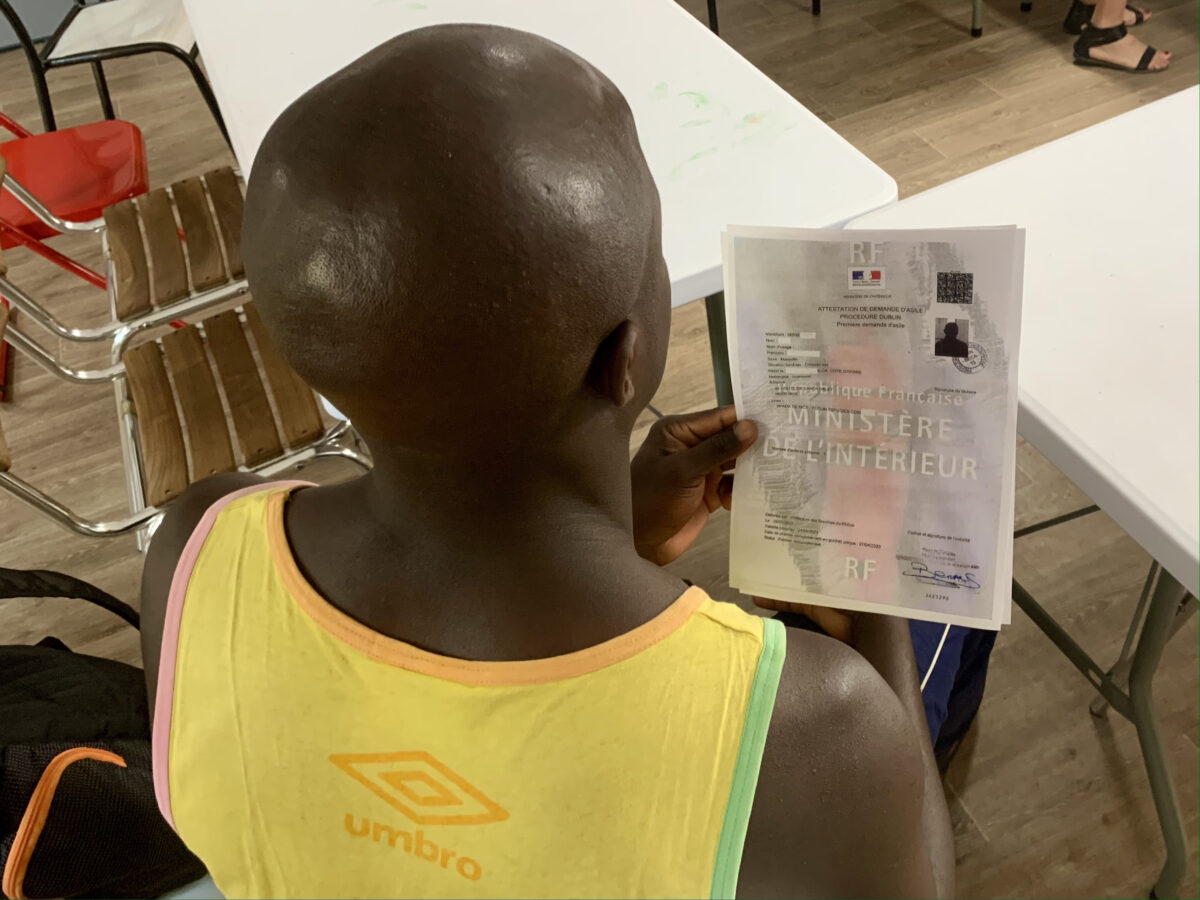The associations in Nice are joining forces to sound the alarm: the lodgings for asylum seekers are saturated in the Nice area. On this World Refugee Day, they call on the public authorities to address this “health and dignity problem.”
“What poses a problem for us today in Nice is that ‘there is no possibility to house asylum seekers in a safe and dignified manner,’” warns Karine Dziwulski, Departmental Delegate of Secours Catholique of Alpes-Maritimes. A critical situation unanimously observed by the four associations (Secours Catholique, Cimade, Amnesty International, Habitat et Citoyenneté) that welcome and support them.
Thus, it’s time to sound the alarm: there is a shortage of housing offered by the French Office for Immigration and Integration (OFII). “The situation has worsened recently and has become untenable,” the associations state in a joint communiqué. In Nice, there are three reception centers for asylum seekers (CADA), one of which has a capacity of 500 people.
Saturated Emergency Accommodations
But this shortage of places also affects emergency structures. Provided by the 115, these two night shelters are also saturated. As a result, asylum seekers, men, women (pregnant), and children, sleep on the streets. “And it’s expected that these emergency accommodations will decrease, come the fall,” worries Karine Dziwulski.
Additionally, Nicole Sheck, a social mediator at Habitat et Citoyenneté, raises another issue: “The night reception is unconditional, which is not respected in Nice.”. She indeed criticizes the CCAS, which manages the emergency reception on rue Trachel, for only accepting those with residency documents. “Which is entirely illegal,” she adds.
Asylum seekers threatened with eviction at the Church of the Vow?
“Where will we go if we leave the Church of the Vow?” asks an asylum seeker. At nightfall, it’s on the forecourt of this church opposite La Coulée Verte that they set up camp due to lack of space in the structures meant to accommodate them. They only occupy the space when the church is closed, and do so methodically. They ensure not to disturb the neighborhood, and not to create safety or hygiene problems. Even “appreciated by the priest,” they leave as soon as the day breaks.
Last June 8, Anthony Borré, first deputy mayor of Nice announced on his Twitter account the initiation of “an expedited procedure to evacuate the undocumented occupying the area.” It’s an urgent measure aimed at preventing harm or stopping illegal disturbance.
The associations quickly react. “These are not undocumented migrants, but individuals with legal status who have every right to be in the territory,” clarifies Christine Panaïotis, president of Cimade 06. Nicole Sheck regretfully adds: “It’s the safest place in Nice […] especially for women and children. It’s the best we can offer them.”
In case of eviction, they confess not having any emergency fallback solution. However, associations have been made aware of the situation by the press, and lawyers are preparing a defense. The expedited procedure has not yet been filed with the Administrative Court.
A “cascade of failures” from the public authorities
“We who are here to support asylum seekers in their asylum process are spending more and more time accompanying them on administrative procedures that shouldn’t be necessary,” says Christine Coupon of Amnesty International. Procedures with the Marseille Prefecture that wouldn’t issue asylum request renewals on time, resulting in the expulsion of asylum seekers, especially from rue Trachel.
French law guarantees the right to accommodation for any asylum seeker, depending on their situation and throughout their application’s examination period. Helpless in the face of a “dramatic situation” arising from a “cascade of failures” notably from public authorities, Secours Catholique opts for makeshift solutions. Together with Cimade, they provide tents for those without a place to sleep. “But handing out tents is a band-aid, not a solution.”
The Alpes-Maritimes is not among the departments receiving the most asylum applications. They rank twentieth, as the department is mainly a transit area. “There is no correlation between the number of asylum applications and proximity to the border,” clarifies Nicole Sheck. In 2022, 3,642 people presented themselves at the Structure for the Initial Reception of Asylum Seekers (SPADA) in the Nice area.


